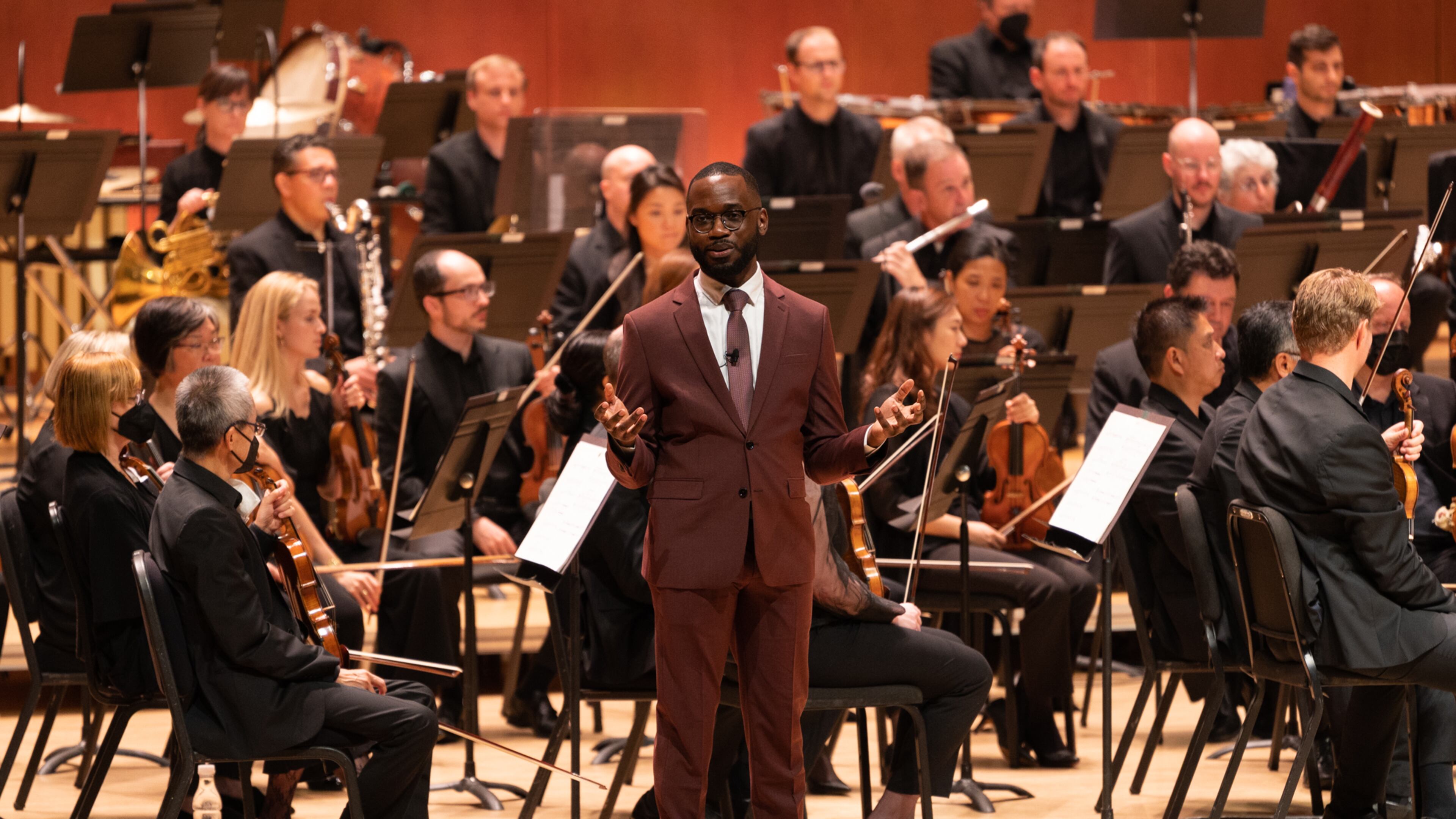Monumental ‘Sleeper’ opens ASO season

Call it a soft opening.
The Atlanta Symphony Orchestra began the 2022-2023 season Thursday with a new conductor — just not the leader Atlanta has been clamoring for. The pomp, circumstance and champagne toasts celebrating Nathalie Stutzmann’s arrival as new music director of the ASO will have to wait two weeks. She’s currently in Brussels conducting Tchaikovsky’s “The Queen of Spades.”
The duty of opening the season fell instead to frequent featured guest Peter Oundjian. The avuncular conductor led the musicians in the traditional season-opening playing of “The Star-Spangled Banner” and was positively beaming as he grabbed a mic to introduce the orchestra, which he called “one of the true crown jewels of American culture.”
The sunny start to the season almost outshined other missing faces. The key departure is, of course, Robert Spano. Gone too is Rainer Eudeikis, who is now the principal cellist at the San Francisco Symphony after serving in that role with the ASO since 2019. Another former principal, trumpeter Stuart Stephenson, has left for the Dallas Symphony Orchestra; bassoonist Andrew Brady is now with the St. Paul Chamber Orchestra. There are a number of vacancies throughout the orchestra as well, created in some cases by the retirements of longtime ASO musicians last year. Six new musicians began their ASO careers Thursday.
Any grand opening needs fireworks. Those came early. The reliably thrilling Emanuel Ax opened the program with an effortless confidence that came, no doubt, from playing his feature, Mozart’s Piano Concerto No. 18, countless times during a decades-long career. Still he made the voluble runs throughout feel like the perfect opening to the season.
The biggest bang of the night, a sound that will resound in Symphony Hall for quite some time, came from Atlanta composer Joel Thompson. It’s a piece Oundjian knows well; he premiered the monumental “To Awaken the Sleeper” a year ago at the Colorado Music Festival, and he brought it to Seattle last winter, with narration by the composer. Thursday, Thompson again gave the narration, crafted from the words of James Baldwin.
It all begins with Ivesian cacophony, a blast of concurrent shouting from each orchestral section balanced in the next breath with the solitary calm of low brass. While Ives is noted for striving to paint the picture of two brass bands melding together, Thompson instead looks for unrest and uncertainty. His tempo marking? “Chaos, insurrection!”
“Sleeper” moves through solemnity and sadness, but only briefly touches on anger. It is rife with juxtaposition. In a passage that begins with the narration “When power translates itself into tyranny,” Revolutionary War-tinged piccolo and martial drums emerge. Later, a trumpet choir slips in bits of “Dixie,” picked up by the rest of the orchestra, that devolve into a cacophony.
Thompson has written hopeful and forward-looking music, shaping with melodies a brighter, sunnier future contrasted with the commotion heard early in the piece. He’s not focusing a bitter eye toward the past, instead choosing to let his music say “this is the reality” before proposing a new one. There’s some discord even in these hopeful passages. While Thompson doesn’t cast blame, he still confronts uncomfortable truths that resonate deeply in the South.
On the second half of the program, Oundjian presented a twirling, bubbling version of Rachmaninoff’s “Symphonic Dances.” It’s a bit of a kitchen-sink composition, complete with an extended alto saxophone solo. For me, though, a challenge emerged: Listen to the music being played instead of processing Thompson’s work. But truthfully, I hope I never stop focusing on it.
CONCERT REVIEW
Atlanta Symphony Orchestra season opener
Additional performance 8 p.m. Sept. 24. $18-114. Symphony Hall, 1280 Peachtree St. NE, Atlanta. 404-733-5000, atlantasymphony.org.

